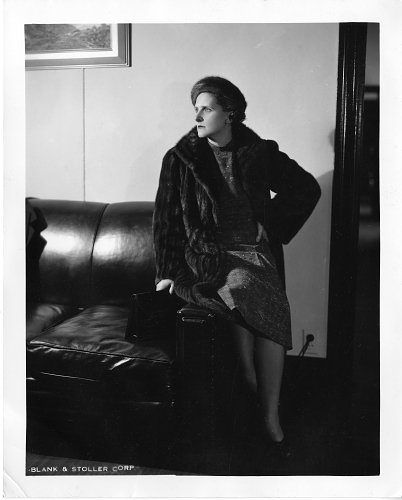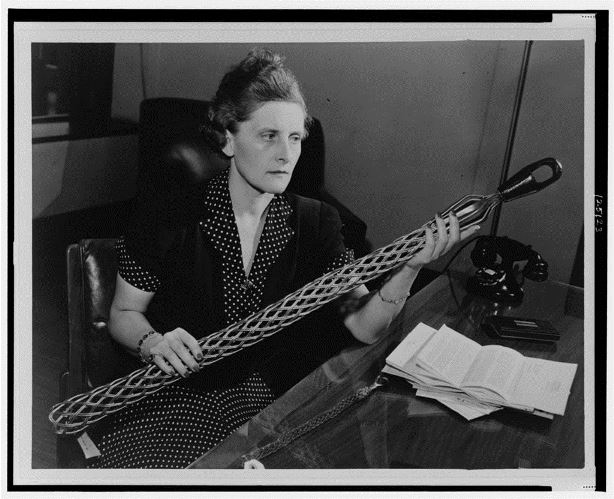Vivien Kellems fought for numerous causes during her lifetime. While she believed in equality for women (in the workplace and in the home), and she proved an avid supporter of a woman’s right to vote, perhaps no fight garnered as much attention from the entire nation as Kellems’s highly publicized battles with the Internal Revenue Service (IRS).
The only daughter of seven children born to ministers in Des Moines, Iowa, Vivien Kellems attended the University of Oregon where she earned a bachelor’s degree in 1918 and a master’s in economics two years later. She then pursued her PhD at Columbia University, but dropped out, becoming a theatrical publicist.
In the late 1920s, Kellems’s brother, Edgar, invented an improved cable grip for use in stringing electrical wiring. Partnering with her brother, Kellems founded Kellems Cable Grips Inc. in Manhattan. The company eventually sold their product for use on such projects as the New York subway system, the Chrysler Building, and the George Washington Bridge.
In 1942 Kellems relocated the company to Westport, Connecticut. It was the same year Vivien Kellems first sought public office, losing a congressional race to Claire Boothe Luce (the first woman from Connecticut elected to the US House of Representatives). For Kellems, it was the first of several political defeats, including failed US Senate campaigns in 1950, 1956, and 1962, and a failed gubernatorial campaign in 1954.

Vivien Kellems, 1940 – Smithsonian Institution Archives
A year after moving to Westport, Kellems opposed the country’s use of a graduated income tax and publicly announced her decision to abstain from paying federal income taxes. After having her patriotism called into question for withdrawing financial support for her country during time of war, she backed down, but only temporarily.
Renewed Battles With the IRS
In 1948, Kellems escalated her fight for tax reform by announcing her plan to cease withholding federal income taxes from her employees’ paychecks. She argued that the Internal Revenue Service did not make her an employee or reimburse her for the time she spent collecting employee taxes so she felt no obligation to do the IRS’s work for them. Kellems’s protest was national news and earned her an interview on one of the earliest episodes of the popular television show, Meet the Press. It was in this same year that Kellems moved her business up the Connecticut shoreline to Stonington—after the town of Westport notified her of her business’s location in an area zoned strictly for residential purposes. Fourteen years later, Kellems closed her company, proclaiming it an end to the era of small business in America.
In 1965 she made another senatorial bid. Running as an independent, she protested the voting system that called for casting ballots along party lines rather than allowing voters to choose individual candidates. Her protest consisted of sitting in a voting booth for nine hours until she eventually fainted from exhaustion.
In the years that followed, Kellems continued to battle the IRS. Protesting that tax laws unfairly penalized unmarried individuals, Kellems never filled out another tax return. She, instead, signed blank returns every year and sent them to the IRS. She continued her fight for tax law reform right up until her death in 1975.









